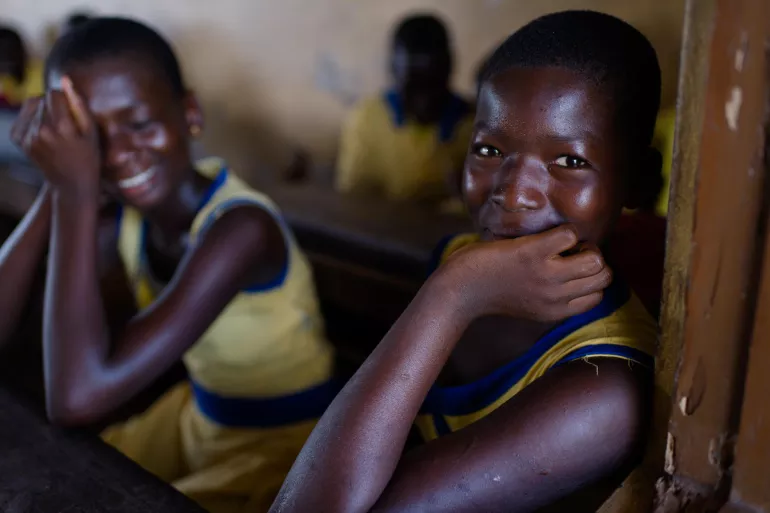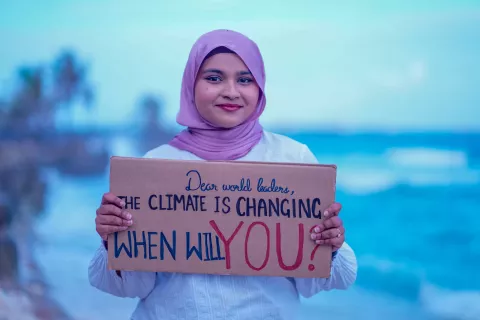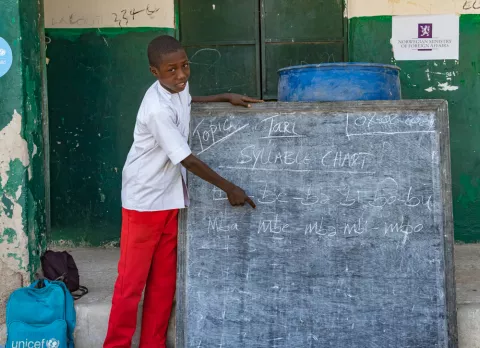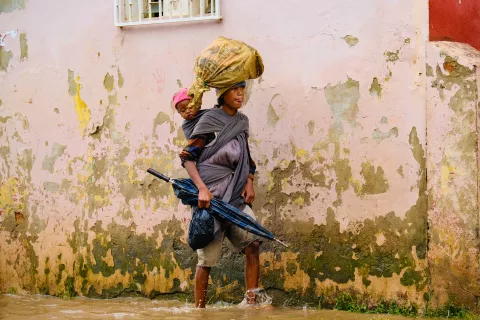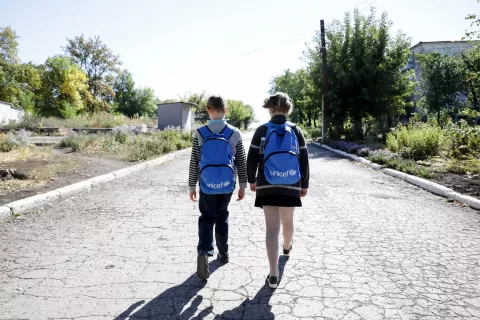The world over, gender equality is a proven precondition for development. When girls are healthy and educated, entire societies benefit from economic growth, poverty reduction and improvements in children’s well-being – bolstering prospects for the next generation.
This is why investing in girls is imperative not only for their individual welfare, but for the prosperity of nations. Countries that resource efforts to lower the barriers girls face accessing opportunities will rise higher and stronger. Of course, doing so requires breaking down the challenges before piecing together the solutions: And that’s where UNICEF is starting here in Ghana.
Even a cursory glance at the everyday obstacles confronting Ghana’s five million adolescent girls is sobering. Anaemia affects almost 50 per cent of them. More than half of Ghanaian girls do not complete secondary school. Child marriages and adolescent pregnancies are a reality for one in five girls, and nearly four in ten will experience at least one act of sexual violence in their lifetimes. Today, reports of online child sexual exploitation and abuse (the vast majority of which relates to girls) are 17 times higher than they were just five years ago.
These data speak to an array of challenges to girls’ empowerment, across sectors. But if we want to move the needle on any one of them, we need to target all.
In Ghana, we know we can’t talk about a holistic, multi-sectoral approach without taking action to strengthen coordination. So, we’re building stronger partnerships with government, civil society, sister UN agencies and other development partners, and investing in cross-sectoral structures that synchronize programme planning and implementation.
UNICEF has also recruited a dedicated gender specialist to guide and advise our global action plan, seeing to it that all UNICEF programmes are evidence-based and gender-responsive. Gender-neutral approaches tend to leave women and girls behind: To truly reach the most vulnerable, we need targeted interventions that will reduce persistent gender gaps.
Gender-neutral approaches tend to leave women and girls behind: We need targeted interventions to reduce persistent gender gaps.
For example, a few years ago, UNICEF helped introduce an iron and folate supplement programme. This not only led to a 26 per cent drop in anaemia cases, it also helped many girls continue their schooling. Girls had more energy and were able to participate actively in school. In fact, the results encouraged the Government of Ghana to scale this programme nationwide.
Now, we’re building on this success, aiming to keep even more girls in the education system by establishing dedicated WASH (water, sanitation and hygiene) facilities for girls in schools. Meanwhile, our teams are working to scale up efforts that help girls build skills in science, technology, engineering and mathematics (STEM).
Beyond schools, we’re working in communities to help more than 200,000 adolescent girls with life skills, and with access to information and services related to sexual reproductive health and the prevention of sexual violence. In too many places across West Africa, girls are excluded from school while pregnant, and many cannot return even after they deliver. By partnering with Ghana Education Service, communities and religious leaders, UNICEF is targeting policies that support young women to stay in school during and after pregnancy. The programme focuses on health care as an entry point, but ultimately aims to support adolescent mothers with diverse services.
Despite these successes, we know that we cannot turn our attention away from new and growing threats. Online safety has become a serious concern. Reports related to online child sexual exploitation and abuse increased from 750 reported incidents in 2016 to over 13,000 in 2020. Preliminary data suggest that these reports will go up to 18,000 for 2021.
In response, we've helped to establish West Africa's first child protection digital forensic lab, which allows the police to capture reliable evidence, prosecute perpetrators and make swift arrests. UNICEF also supported the adoption of comprehensive legislation that criminalizes sextortion, non-consensual sharing of intimate images, online bullying, and violence and online grooming.
Beyond digital safety, we want to be sure girls have greater ownership of digital spaces. We need to close the digital gender divide so that all girls can access information online and offline, at the same rate as their male peers. We also want to see more platforms for adolescent girls to share their views and participate in advocacy. Adolescent girls have very visibly led some of UNICEF Ghana’s public advocacy on issues that affect them, using tools such as U-Report to make their voices heard. As UNICEF, we must stand with them and increase these opportunities.
There are still many challenges ahead: Resources for girl-centred programming remain scarce. And gender expertise in the key sectors in which we work – within UNICEF and with partners – is limited. But we’ve seen what a difference it makes to centre the rights of adolescent girls in our programming, and the impact this has on national policy response. And we won’t give up.
Fiachra McAsey is Deputy Representative at UNICEF Ghana. Jovana Bazerkovska-Sander is a Gender Programme Specialist at UNICEF Ghana.

